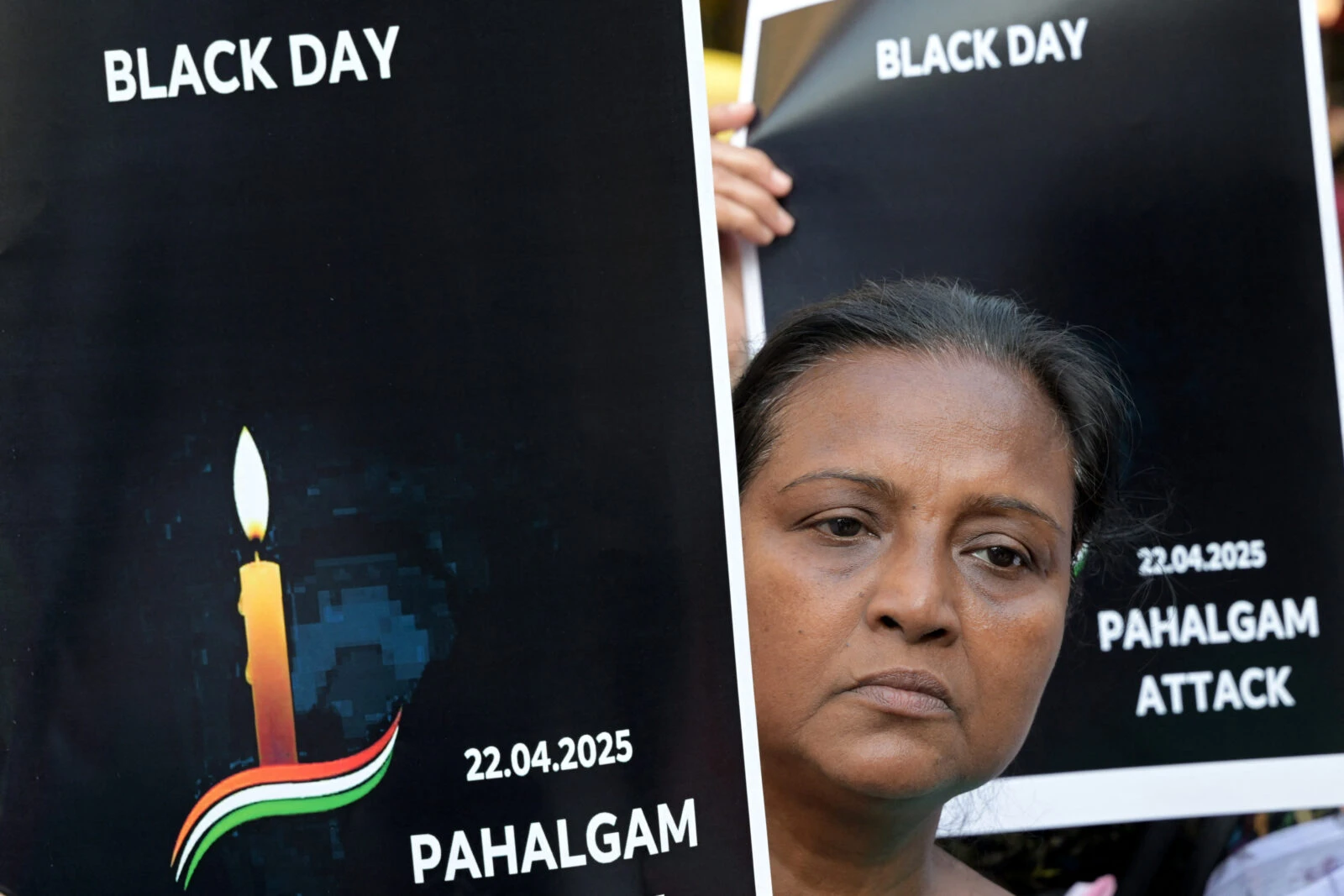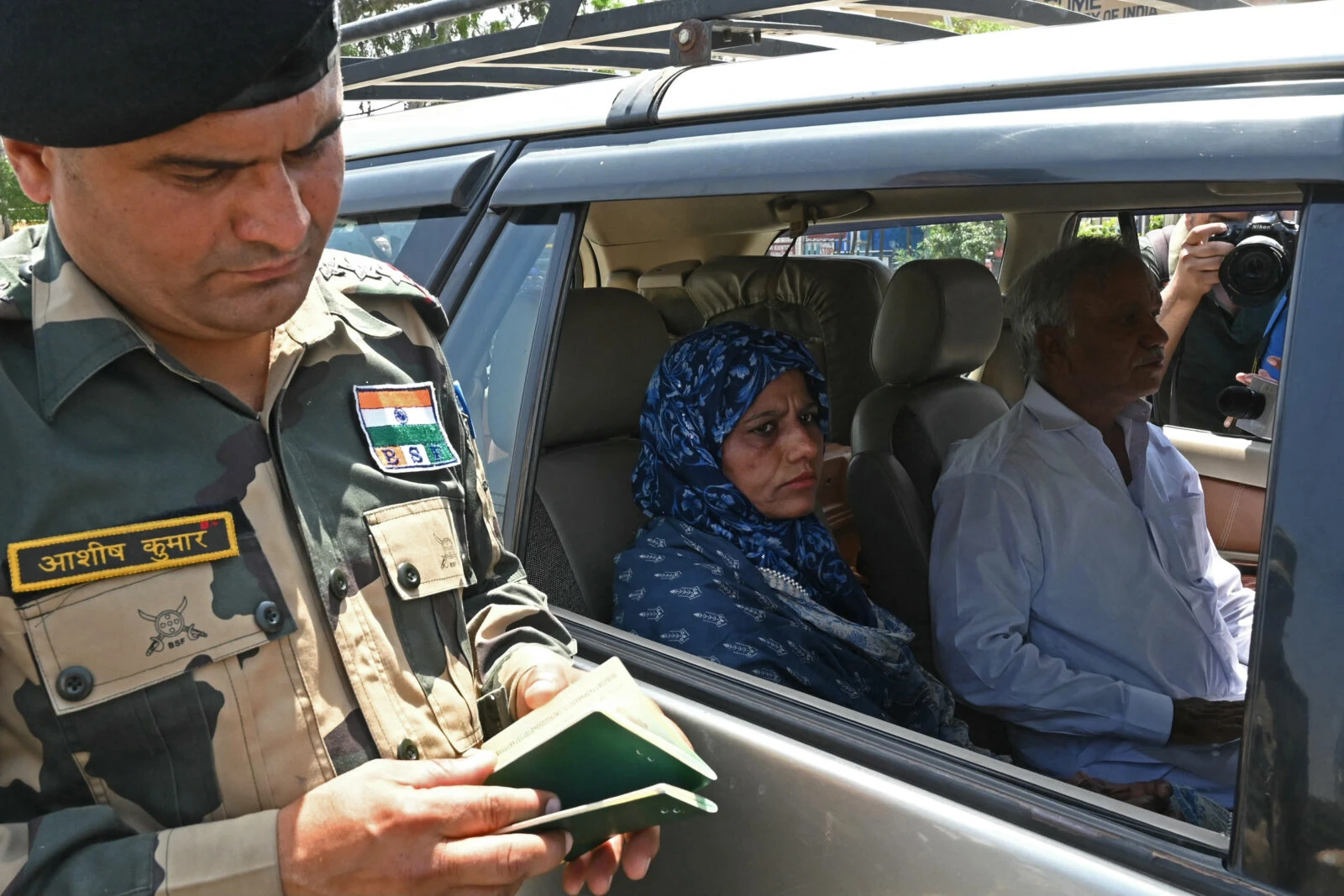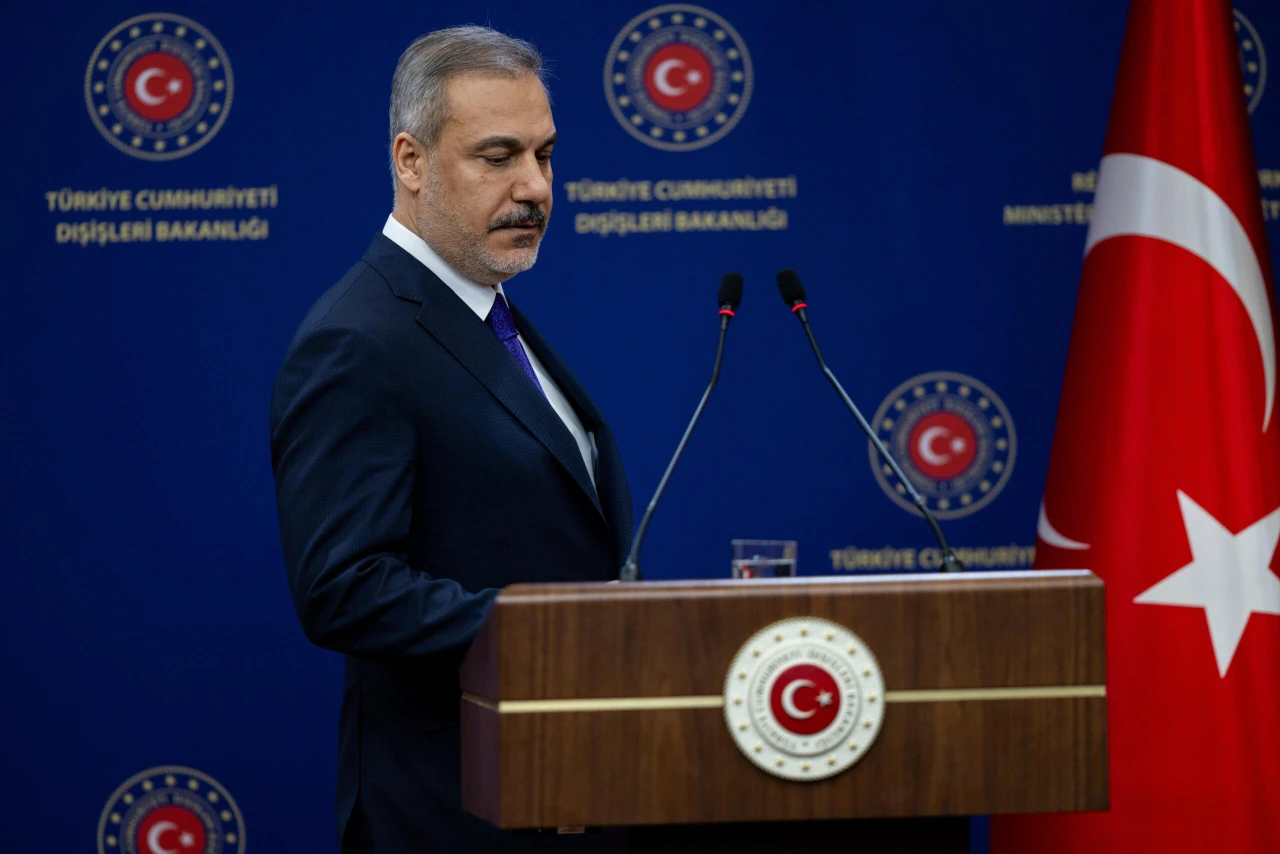Türkiye’s evolving position on Kashmir and strengthening ties with Pakistan
 Turkish President Recep Tayyip Erdogan and Pakistani Prime Minister Shehbaz Sharif hold a joint press conference after their meeting at the Presidential Complex in Ankara, Turkiye on April 22, 2025. (Photo: Murat Cetinmuhurdar - AA)
Turkish President Recep Tayyip Erdogan and Pakistani Prime Minister Shehbaz Sharif hold a joint press conference after their meeting at the Presidential Complex in Ankara, Turkiye on April 22, 2025. (Photo: Murat Cetinmuhurdar - AA)
On April 26, 2025, Turkish Foreign Minister Hakan Fidan engaged in a telephone conversation with Pakistan’s Deputy Prime Minister and Foreign Minister Muhammad Ishaq Dar. The discussion focused on the recent developments between Pakistan and India, highlighting the close diplomatic ties between Ankara and Islamabad.
The conversation has come in the wake of a deadly terrorist attack in Kashmir’s Pahalgam region, which claimed the lives of 26 civilians, mostly tourists.
The attack has intensified tensions between the two nuclear-armed neighbors, with India accusing Pakistan of supporting the militants responsible. Islamabad, however, distanced itself from the attack, expressing concern and offering condolences to the victims’ families.
In response to the attack, both countries took a series of retaliatory measures.
India suspended the decades-old Indus Waters Treaty, expelled Pakistani military advisors, and suspended visa services for Pakistani citizens.
Pakistan reciprocated by expelling Indian military advisors, suspending trade, limiting the number of Indian diplomats in Islamabad, closing its airspace to Indian airlines, and warning that any attempt to alter river flows under the treaty would be considered an “act of war.”

Türkiye’s role in South Asia and historical approach to Kashmir issue
Türkiye has shown interest in mediating the Kashmir conflict between India and Pakistan in the past. Ankara’s efforts aimed to facilitate dialogue and offer diplomatic solutions to the longstanding territorial dispute in the first decade of Justice and Development Party (AK Party) rule, with Erdogan visiting India in 2008 being the diplomatic symbol.
However, recently, the Turkish president has made it clear that Türkiye will not abandon its stance on Kashmir, despite the clear frown from the Indian side. Erdogan’s steadfast support for Pakistan has stood in sharp contrast to the more muted responses from those in the region, particularly Saudi Arabia and its Gulf allies, who have largely remained silent on Kashmir in recent years.
In 2017, after India unilaterally scrapped a key law (Article 370 of the Indian Constitution) that allowed Kashmir semi-autonomy in exchange for joining the Indian union after independence, then-President Khan had a phone call with Erdogan. The Türkiye side shared its concerns over the situation and assured Khan of the nation’s steadfast support in this regard.
Pakistan’s support for Azerbaijan during the Second Karabakh War, where Türkiye also played a significant role, has further solidified the alliance between Ankara and Islamabad. Both countries maintain parallel positions on key regional issues, including the Kashmir dispute.

Shifting alliances and India’s regional strategy
In response, India has been strengthening its ties with Armenia, deepening its presence in the South Caucasus. This strategic partnership includes defense cooperation and arms procurement deals, reflecting New Delhi’s efforts to counterbalance the Türkiye-Pakistan-Azerbaijan alliance.
Meanwhile, India has been grappling with rising anti-Islamic sentiment domestically, a trend that has drawn international concern. The Muslim minority in India, constituting approximately 14% of the population, has faced increasing marginalization and discrimination in recent years.
Legislative measures and political rhetoric have contributed to the alienation of Muslim communities, raising alarms among human rights organizations and international observers. These developments have further strained India’s relations with Muslim-majority countries, including Türkiye.
Türkiye-Pakistan alliance signals new era in regional politics
In February 2025, Erdogan visited Pakistan to co-chair the 7th round of the High-Level Strategic Cooperation Council with Prime Minister Shehbaz Sharif.
During the visit, Erdogan reiterated Türkiye’s strong support for Pakistan on the Kashmir issue, emphasizing Ankara’s consistent stance over the years. His remarks drew sharp criticism from Indian officials, further straining Türkiye-India relations when tensions over Kashmir were already high.
“The Kashmir issue should be addressed according to the U.N. resolution through dialogue and keeping in mind the aspirations of the people of Kashmir,” Erdogan said.
Almost a week after Erdogan’s address, New Delhi described his remarks as “unwarranted” and said they were “unacceptable” concerning India’s territorial integrity and sovereignty. India also stated that it had lodged a “strong protest” with the Turkish ambassador.
The recent visit by Prime Minister Shehbaz Sharif and the latest phone call between the two countries’ foreign ministers highlight a clear reality: Türkiye and Pakistan are closely aligned and consistently stand by each other during periods of heightened tension.



